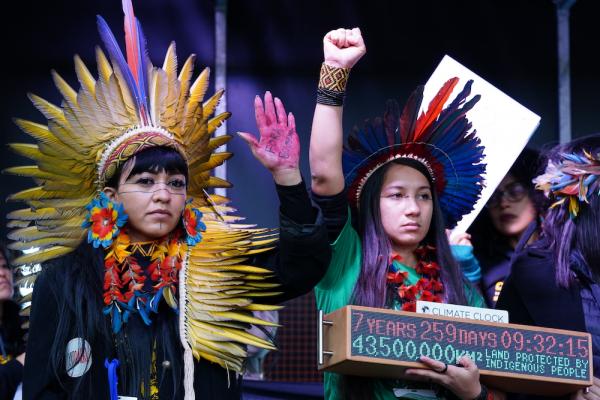Nov 18, 2021
Colonial logic, when applied to political systems, protects power and controls the public narrative. When world leaders use generic terms like “humanity” or phrases like “all humans are responsible for the crisis,” it conceals the responsibility of governments and large corporations. By pointing to humanity in general, they imply that we are all equally responsible for the climate crisis and invisibilize the efforts of Indigenous leaders in the fight for climate justice.
Read the Full Article

Already a subscriber? Login
